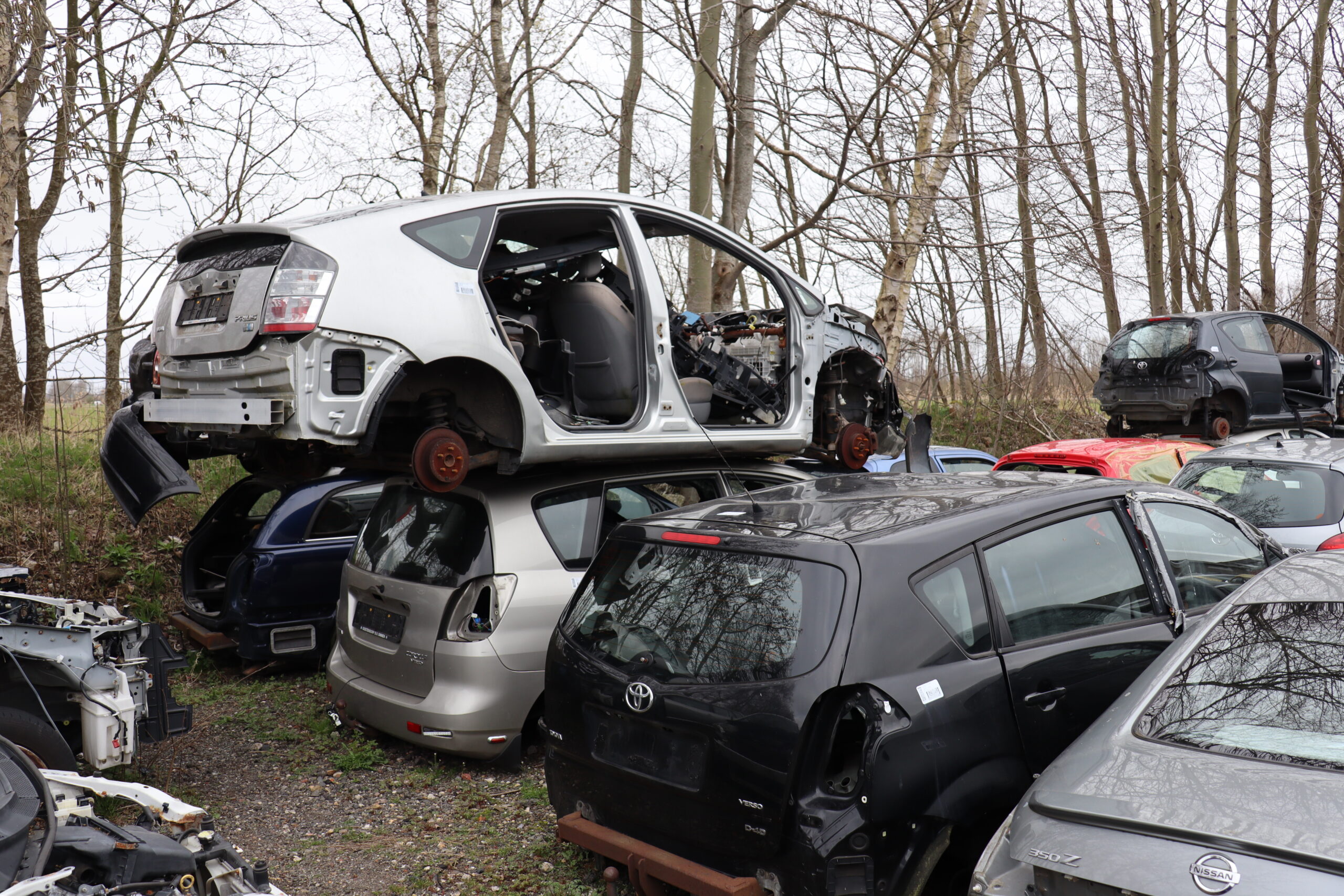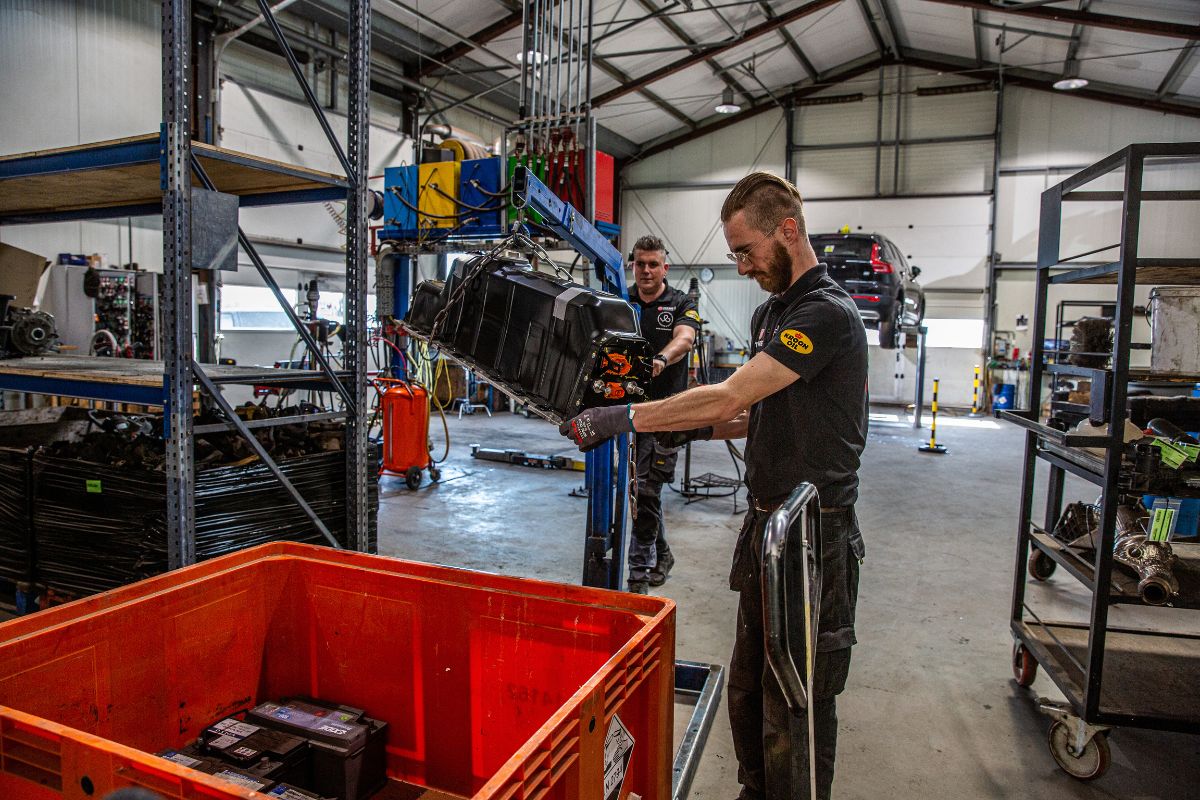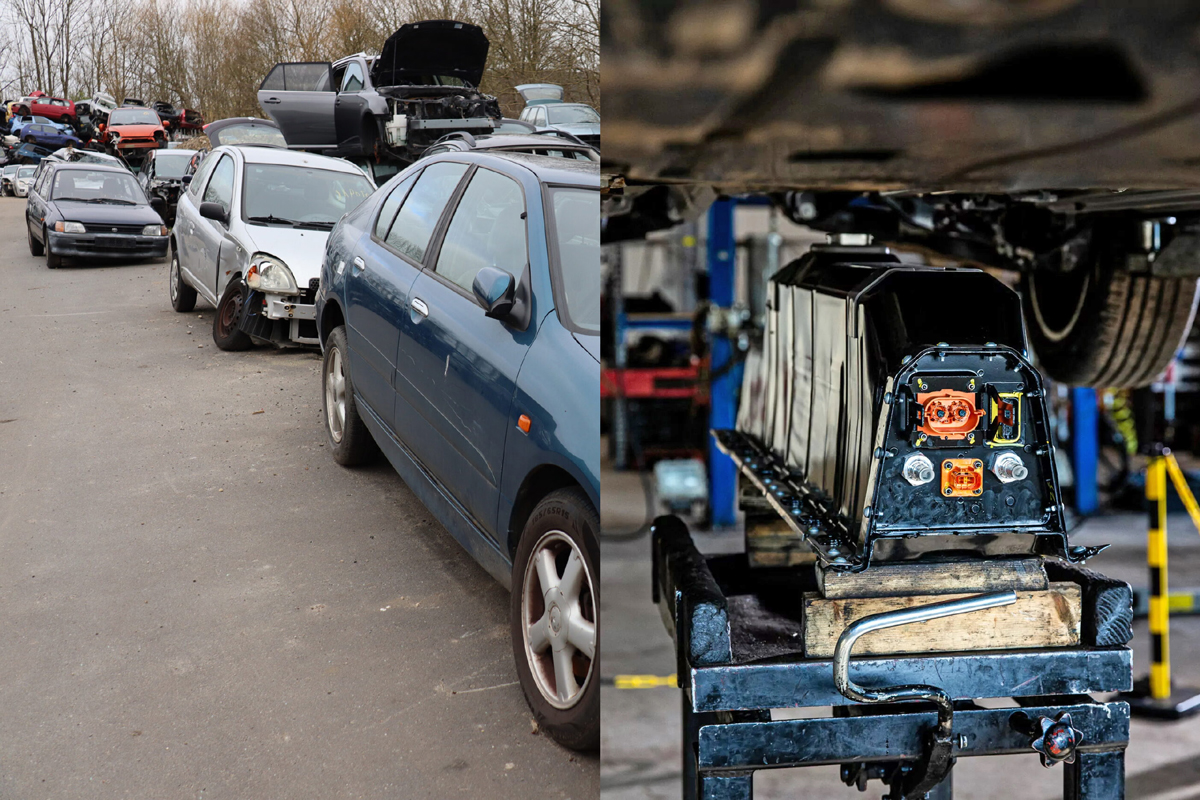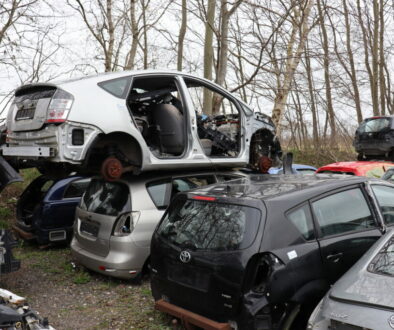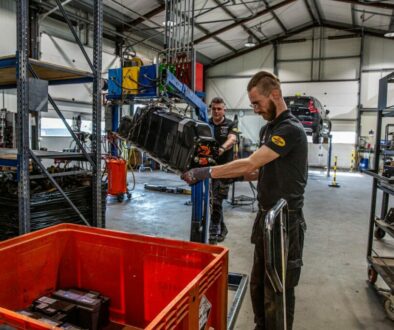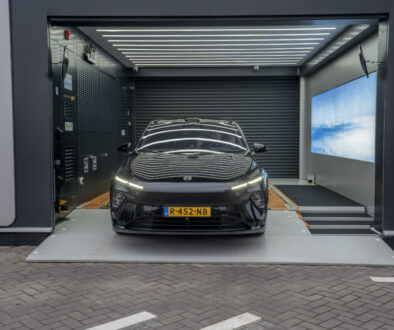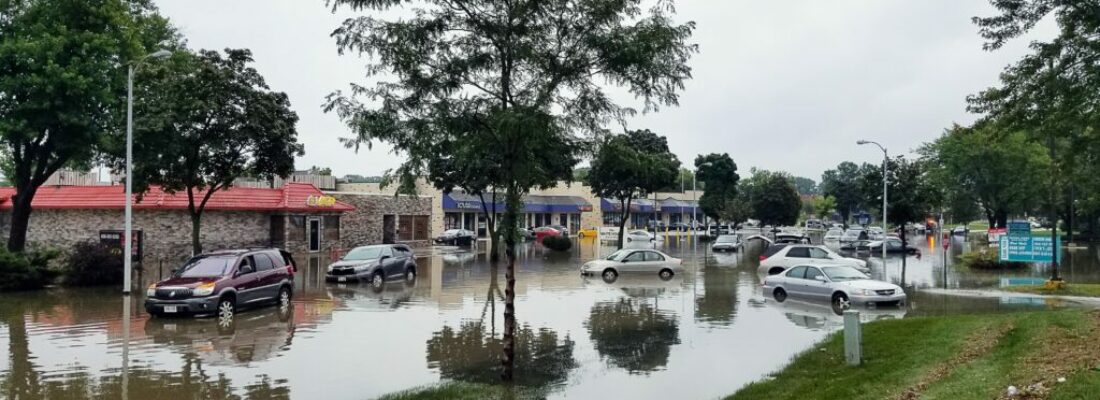
The number of natural disasters has been increasing since 1980. More and more companies and individuals are now having to deal with drought and flooding. In the summer of 2021, flooding wreaked havoc on areas of the Netherlands Limburg, Belgium and Germany. In Belgium, some 12,000 vehicles were water-damaged, but only about 1,000 of them found their way to certified car-dismantling companies. It was a similar story after hurricane Katrina in the US. Of some 600,000 damaged vehicles, it turned out later that half of them were subsequently resold. “This is a big problem In Belgium,” insists Catherine Lenaerts, managing director of Febelauto. “Vehicles like these are often refurbished then resold, with their new owners being oblivious to the previous water damage. This can lead to dangerous situations on the road. Every part of a vehicle that has been submerged up to its seats must be dismantled and recycled by an accredited car-dismantling company.”
Flooded company
Lenaerts visited a company called Car Parts & Recycling in Pepinster just before the 2021 floods, then again a few weeks later. “When I first visited the company, at the end of June, it had been completely renovated. The complete infrastructure, including the dismantling hall and warehouse, had been renewed and everything looked fantastic. Four weeks later the nearby river broke its banks and flooded the company’s premises, causing extensive damage. The water rose to a height of 2.5 metres. Business-wise it was a disaster, particularly when you bear in mind that it’s not, or barely, possible to insure against such contingencies. In Belgium, private individuals can submit a claim to the Calamity Fund, but companies cannot. Car Parts & Recycling was reimbursed for just 10 per cent of the incurred damage. For this company, as well as many others like it, it was a hard blow.”

Dubious business opportunities
A disaster that results in many damaged cars, can quickly become a dubious business opportunity, explains Lenaerts. In situations like this, what have effectively become end-of-life vehicles should be taken to accredited processing companies. Unfortunately, unscrupulous individuals with no respect for environmental legislation see them as an easy way of making a “quick buck”. Shortly after the floods, she wrote on behalf of Febelauto to nine Belgian ministers and asked whether something could be done about these undesirable practices. “We urged these ministers to ensure that environmental legislation was adhered to. We also asked the Calamity Fund to only honour claims submitted by private individuals who could show a certificate that the vehicle had indeed been destroyed. No certificate, no money.”
Rules are not made to be broken
Even after the flooding, not everything went as it should. “Normally, insurance companies sell end-of-life vehicles to authorised car-dismantling companies. These are the only companies permitted to dismantle a vehicle that’s been declared a write-off by an insurance assessor. But in the aftermath of the flooding, insurance companies tried to get as much as they could for the damaged vehicles. Pressure was put on assessors to write-off as few vehicles as possible. Everything to ensure the best-possible financial outcome for both the insurance company and the vehicle owner.”
Experts were under pressure to classify as few vehicles as total loss. Everything to ensure that the proceeds are as high as possible for both the insurance company and the private individual
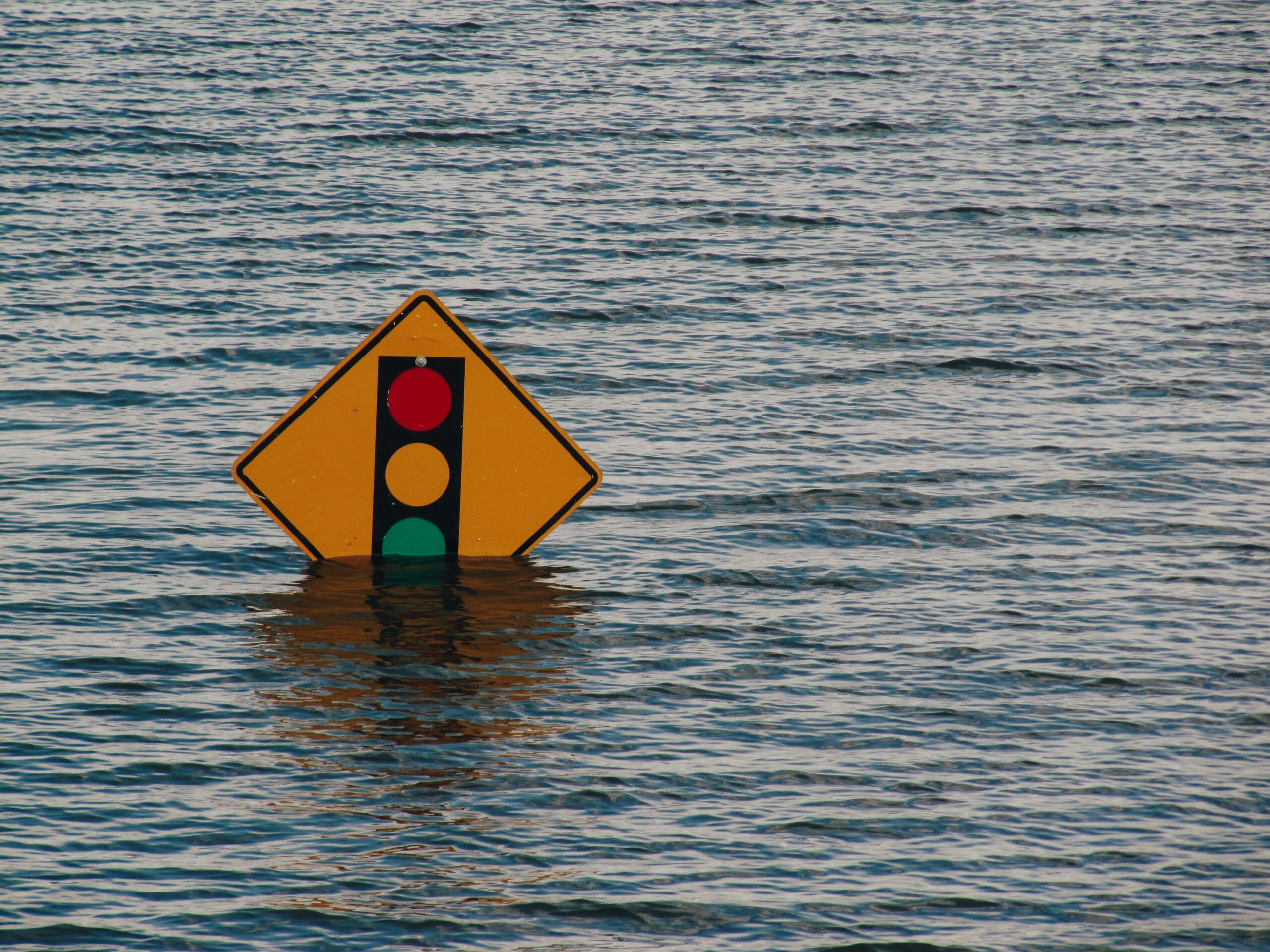
Unambiguous regulations in Europe
To rectify the situation and ensure that regulations are followed after future floods, Febelauto, as well as regional authorities in Belgium, are lobbying for unambiguous regulations in Europe. “When it comes to water damage, we believe that the same regulations should apply throughout Europe,” says Lenaerts. “If a car has been submerged, it must be regarded as a write-off and then recycled through the approved channels. That is the only way to preclude that vehicle from returning to the market by being sold as a second-hand car, with all the risks that that would entail.” She hopes the topic will be included in the revision of the EU’s End-of-life Vehicle Directive early next year.
While it’s not possible to prevent floods or natural disasters, you can prepare for them. Lenaerts is firmly of the opinion that the government must ensure that vehicles written-off because of flood damage should be delivered to accredited processing companies. “Entrepreneurs in car-dismantling companies would be wise to build up a strong network of partners and ensure that they are as well insured as possible.” Finally, to avoid buying the proverbial pig in a poke, there are several giveaway signs that a second-hand car has suffered water damage that a perspective buyer could look for. These include the lighting and the condition of the floormats. In the USA and Canada, written-off cars are entered into a database. “It would be good if we had a similar system in Europe. It’s too easy for cars that should have been written-off to cross our borders.”
Entrepreneurs of car dismantling companies would do well to have a strong network of partners and to ensure that they are insured as well as possible
Cars that have been under water must be written-off
Flooded cars that have been under water to the level of their seats (even if just momentarily) are write-offs. Quite often there will be nothing wrong with their engines – in many cases they can still be started up. However, they can no longer be considered roadworthy, because of the potential damage to their electronic components. Corrosion, for example, can cause a short circuit. These vehicles must be dismantled by an accredited car-dismantling company. Non-electronic parts, such as doors, bumpers and the like, may be sold.
Car recycling in Belgium
Febelauto collects, processes and recycles end-of-life vehicles and industrial batteries in Belgium. Its managing director, Catherine Lenaerts, heads a small team of experts.
Deel dit bericht op je kanalen
Newsletter
